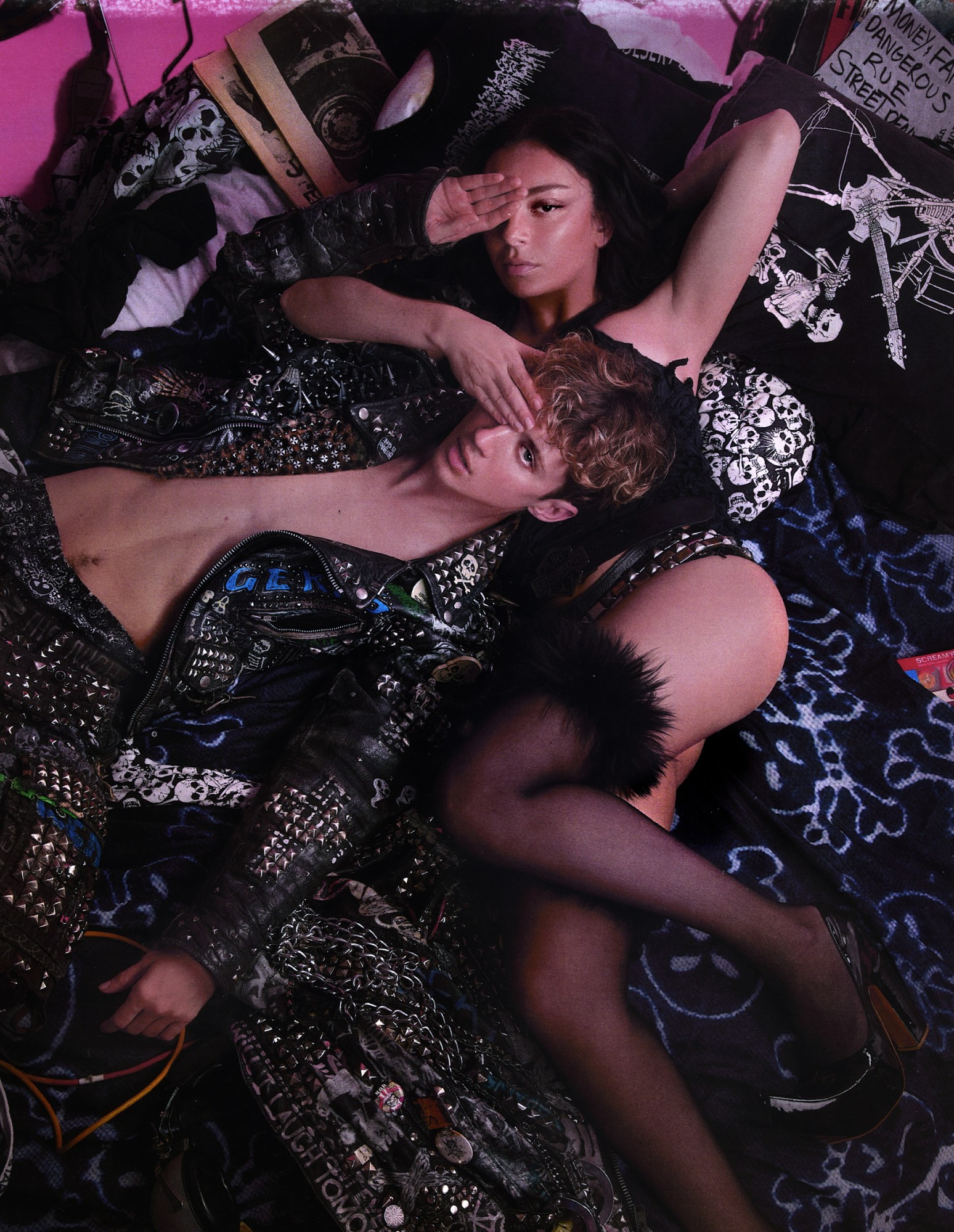Eavesdropping on Charli XCX and Troye Sivan feels like getting sucked into the group chat you wish you were part of.
Charli XCX: Where are you Troye, still in Mexico City?
Troye Sivan: Leaving today.
Charli: How good is Contramar?
Troye: So good.
Charli: I saw you got that fish and I was like, Fuck you. I hate you. It’s so good.
Speaking from London in late August, Charli can’t talk about what she’s just been doing in Poland or why she had to go there in the middle of the busiest year of her life (she’s since confirmed it was for a film project with Jeremy O. Harris). Meanwhile, Troye is in Mexico City for a shoot (he can’t say anything about that either), and is about to head back to LA and go straight into rehearsals for Sweat, the co-headlining U.S. tour that he and Charli will kick off later this month.
After years of the charts trending towards dull, muted confessionals, Charli and Troye’s most recent albums Brat and Something To Give Each Other cut through precisely because of their commitment to fun but meaningful pop music. The projects sound very different but are spiritually interlocked: Charli’s album became this moment’s handbook for emotionally vulnerable party girls of all genders, while Troye’s turned post-Covid euphoria into a queer nightlife soundtrack for the ages. Charli and Troye’s current music asks serious questions about identity, relationships and self-worth; it also cranks things up til they’re loud, hard and wet. (Hence, Sweat.) The pair are brilliant at sparking conversation over their raunchier content, whether that’s Troye singing into the crotch-level mic of his angel-winged dancer on his recent European tour, or Charli’s “Guess” remix featuring Billie Eilish, which managed to make a song about peeking at panties even more sexual.
The past year has kept the close friends and musical collaborators on the road and apart. You wouldn’t know it: when they’re chatting, the 6,322 miles separating them seems to vanish.
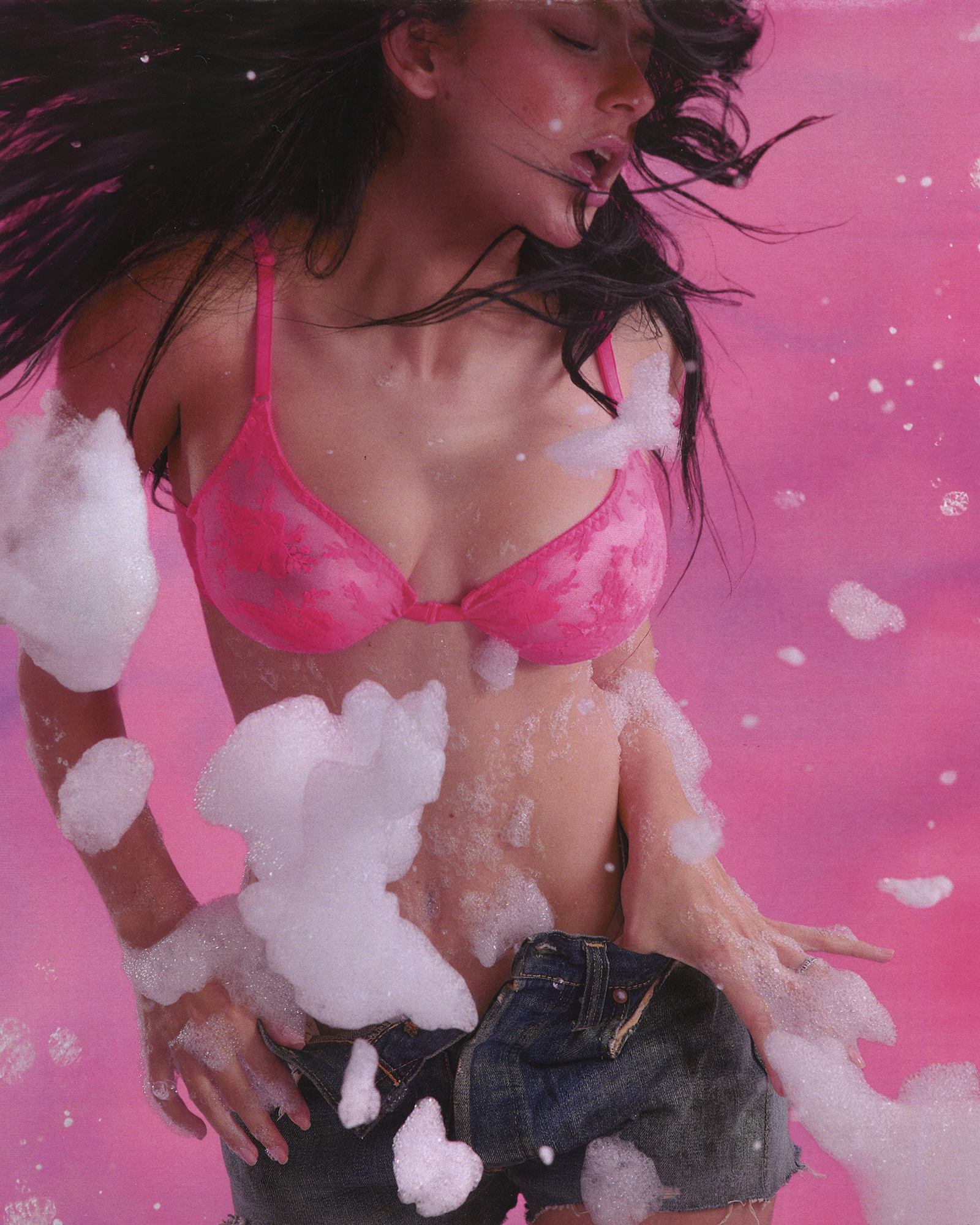
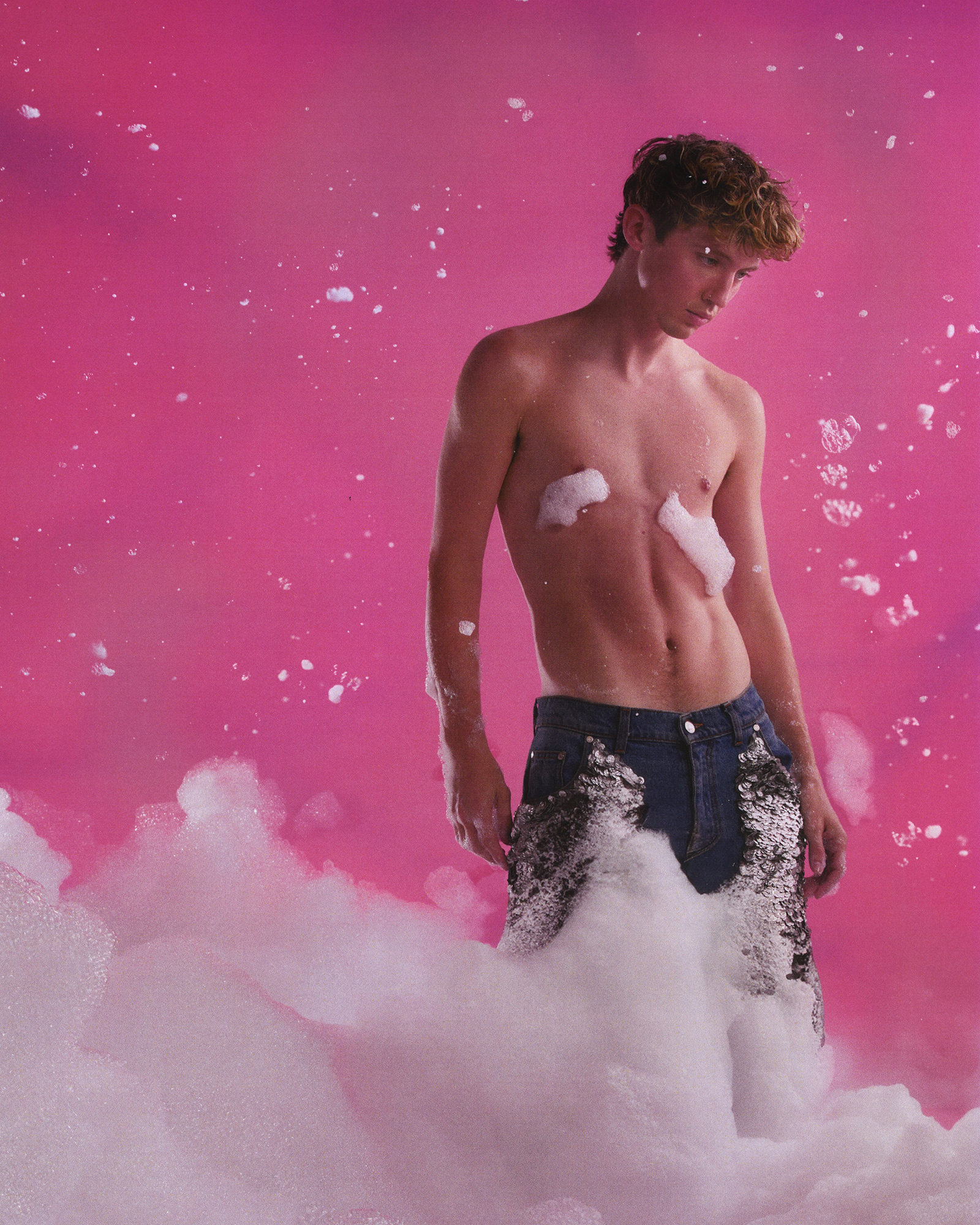
How did you two first meet each other?
Charli: We met at a party I was having at an old house of mine where I had a lot of parties. I didn’t know Troye was going to be there. I had just been at the local store buying ice. I came back to my house and Troye was sat on a stool in my kitchen.
Troye: It was a really fun party, and it was my first time going to a Charli party. I feel like you don’t have them as much anymore, or at least not house parties.
Charli: Definitely not like that. The last time I had a ragey rager was when I threw a party for Caroline [Polachek] after her show at the Greek. We had everyone back and everyone swam, and it felt like the old days so to speak, but now it is definitely a lot more controlled. I had one before my birthday party, which I’m so sad that you missed.
Troye: Can’t believe I missed that. That’s going to eat me for the rest of my life. I had already seen Charli live; I was definitely a big fan. I don’t really remember how we started collaborating. Charli, was “1999” the first thing that we did? How did that happen?
Charli: I don’t actually know either. I mean, I think a big piece in this was that we have the same manager, so not to get too into pulling back the curtain, but I think that’s how “1999” came about, but also maybe not, I don’t know.
Troye: Isn’t “1999” [Swedish producer] Oscar Holter? And I had been working with Oscar as well [as you]. But once we were off to the races, it was just a good vibe. It’s weird to say this in front of you Charli, but I think we think about music in similar ways. I have always thought it was really cool the way you procure community in pop. When I think about the community that we are surrounded by, whether it’s songwriters that we love or friends that we have in common, all of these friendships felt very natural. Not to be wanky about it, but the pop world is actually quite small once you’re in it. It felt like a natural extension of the friendship to start working together as well.
Charli: The more we’ve done it, the more effortless it becomes and the more we’re both able to flex our own muscles and skills within the song. I feel like working together recently has been a completely different experience than when we worked on “1999.”
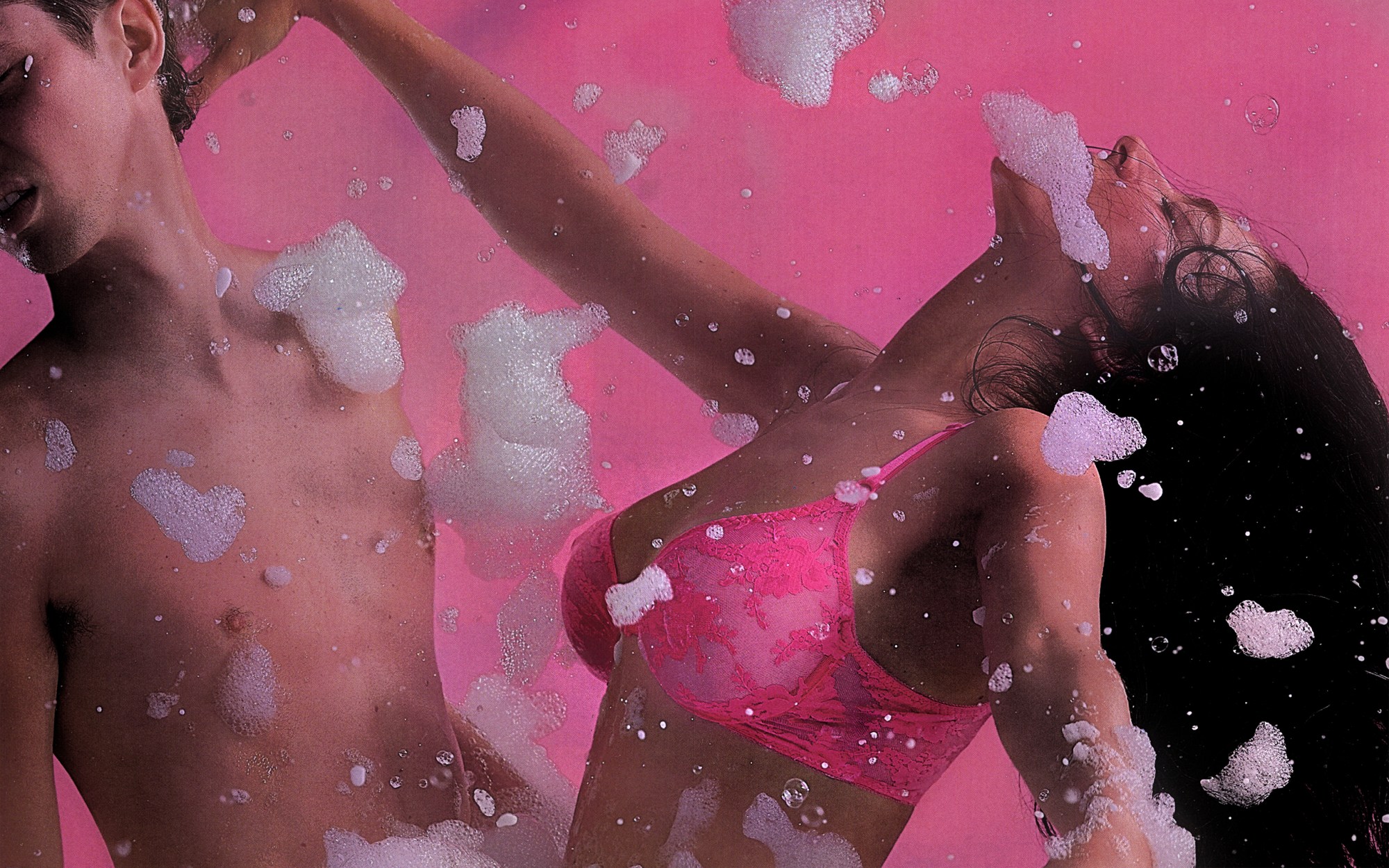
Do you feel like pop is in a good place right now?
Charli: Yeah, I do. I think it’s a really interesting time in pop music where [being] niche is being rewarded in a way that we haven’t seen for a while. It feels like there’s this new wave of artists with different ambitions and cultural touchpoints who are really thriving in mainstream culture. And I think that’s myself, that’s Troye, that’s Chappell [Roan]. When I think about the three of us, that’s a lot of music that either is inherently a part of queer culture or is very much inspired by it and that’s super cool. When you were doing Bloom you shot this video with Bardia [Zeinali] and I remember at the time being like, Oh my God, this pop star is owning his gayness in a really outward confident way. That was pretty rare for an artist of that level at that time. What was that, 2018?
Troye: Yeah.
Charli: We’re eight years on and now you have so many artists being outwardly gay and talking about drag culture. It’s cool that this is not an anomaly anymore.
“If you don’t have a distinct point of view, I don’t know if it’s working in pop right now.”
CHARLI xcx
It feels like people are being rewarded for being specific.
Troye: There are very specific characters in pop right now. It almost feels like The Avengers. One of my favourite things about watching this moment for you Charli, for Chappell, for everyone this is happening for, is that it’s not like you guys have changed your approach. It doesn’t feel like you’re actively striving to get the masses or anything like that. To me, it comes across as the most authentic, real vulnerable version of you and that’s the one that’s connected.
Charli: Before Brat came out, I was saying to everyone around me, “Be prepared that this is probably going to be the album that doesn’t perform very well at all.” Because I was like, “I’m just going to make songs about my friends. I’m going to name check them all. I don’t really care if anybody else likes it. I just need to do this because the previous record was so about me trying to appeal.”
Troye: I remember Crash being, like, the big pop record.
Charli: [laughs] Right. Which is funny when we think about how the chips fell. But I totally agree with you. Whether it’s Bloom or Pop 2 or Chappell, the seeds have been there. I really do feel that culture works in massive pendulum swings and it can’t be the same way forever.
Troye: I think we all understand how things ebb and flow, but I’m curious to see what’s going on in five years. I have no idea what it’s going to look like and where we’ll be.
Charli, it’d be funny if your next album was Flop and you were like Flop summer! Flop era!
Charli: I mean, great that we already decided the title for the next era.
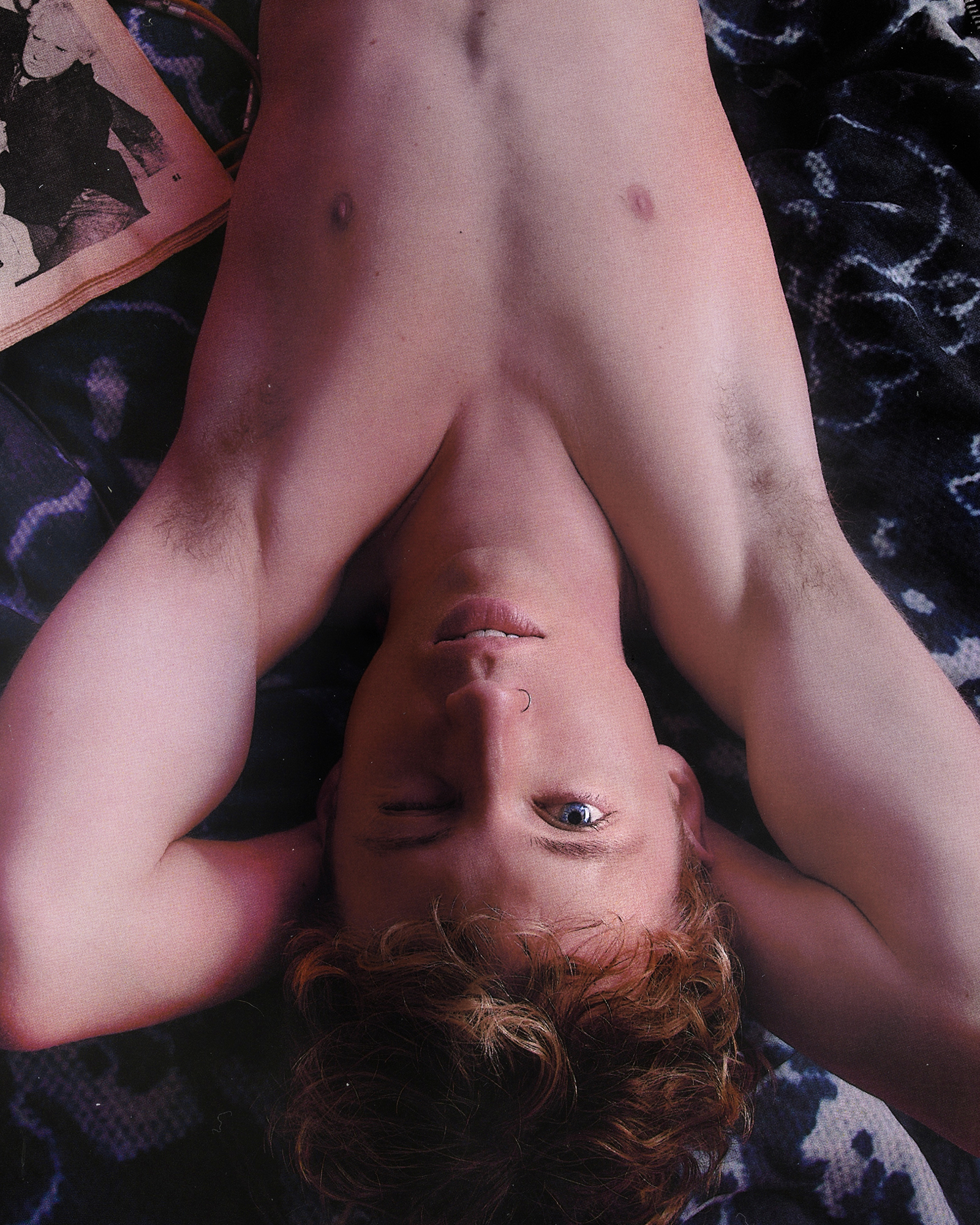
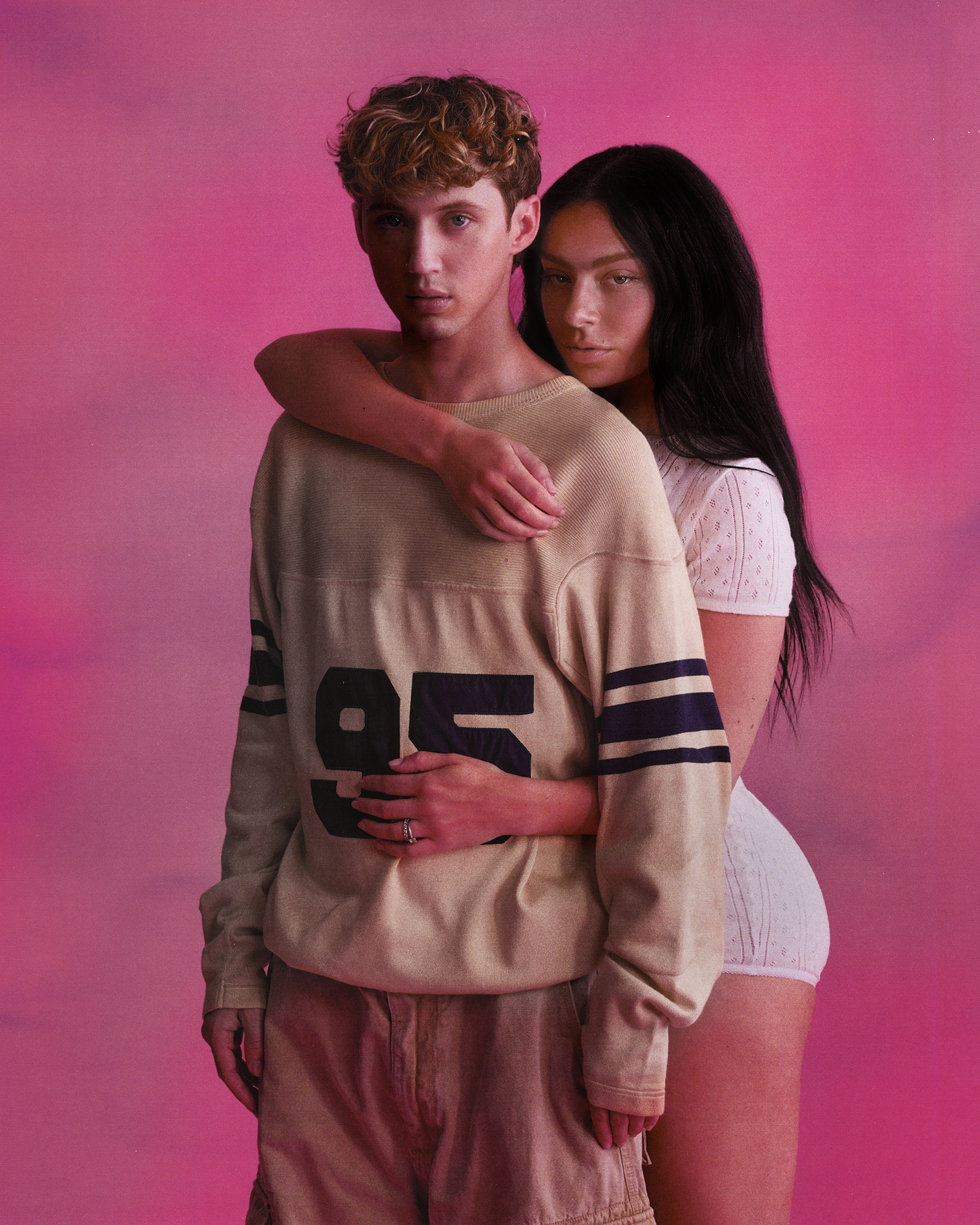
It feels like people are coming back outside after the last few years, and being able to be in clubs is fueling a desire for people to get out and dance together, which obviously Sweat is going to cater to. Do you feel that desire for community?
Troye: That was a huge starting point for my album. Melbourne would have super intense lockdowns, and then we would get to zero Covid and they would open up the whole city. It was a euphoria unlike anything I’ve ever felt. It reminded me of the first day of summer when everyone’s out all of a sudden, times a billion. I started to become obsessed with connection, being with as many people as possible, dancing on each other, sweating on each other.
“The first time I heard the chant in Rush, I was like, ‘this is either so dumb…or so dumb that it’s incredible.’”
troye sivan
Do you feel like Australian and British artists have a similar approach to pop music?
Charli: I think some artists approach things similarly and some don’t. Some people live or die by the song in this way that I just don’t. I’ve never cared too much about ‘the rules of pop songwriting.’ To me it’s more just about a moment and a commentary, and that to me is the hooky part of the song. I think we have been approaching Sweat that way. It’s about being able to flip the spaces on their head and turn them into party moments in quite a drastic way.
Troye: Our shows at the moment are very different from each other and both speak to different elements of pop. I think that the collision of it is going to be cool.
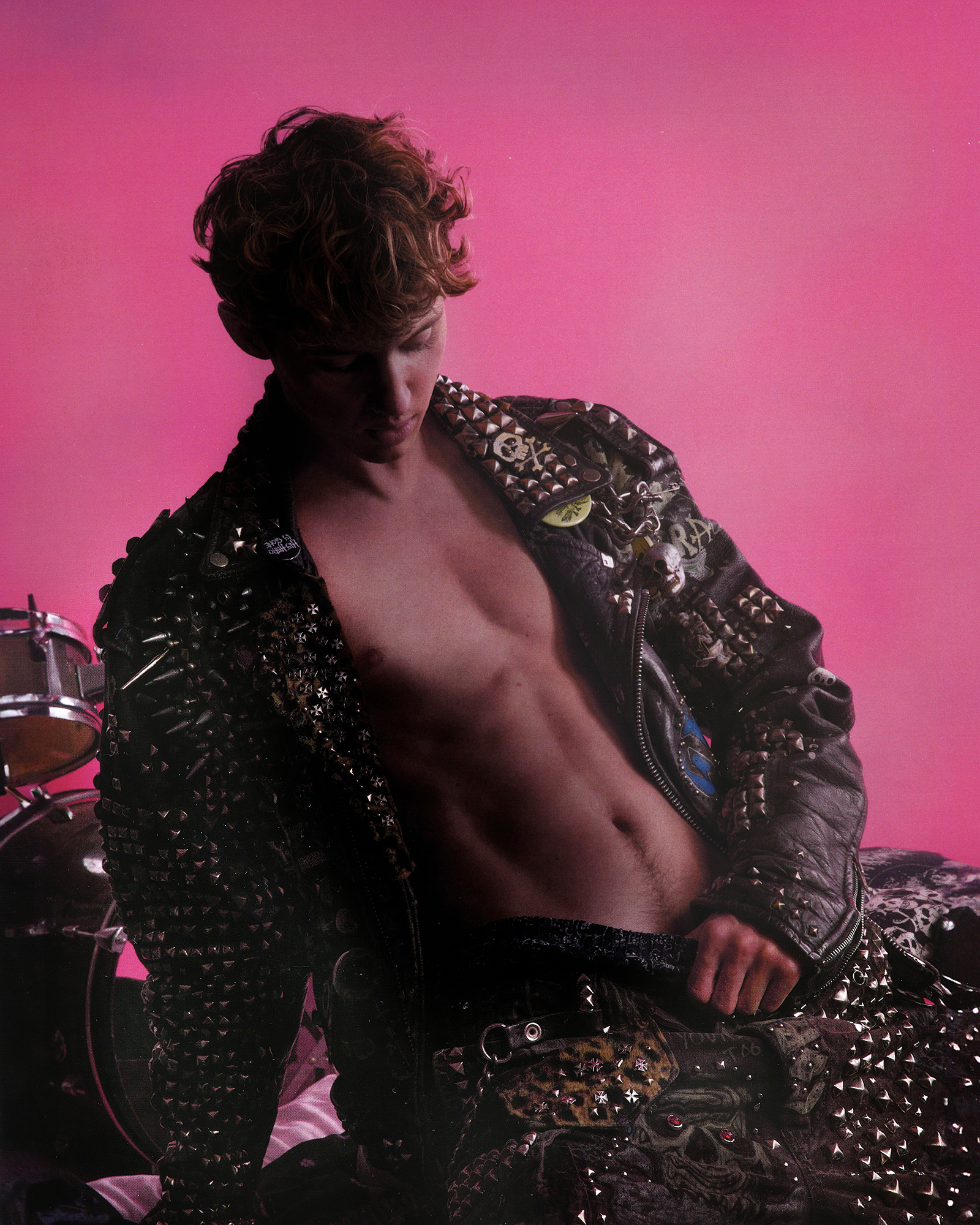
You both made records that are very clubby — you can play them out — but are also so introspective and specific. Those aren’t always qualities that people associate with pop. They think of pop as being more generic, like “come on Barbie, let’s go party.”
Troye: That totally has its place. I think there’s a sense of self-awareness in the music that I try to make. My honest reaction the first time I heard the chant in “Rush” was like, this is either so dumb or it’s so dumb that it might be incredible. I think it ended up being the latter, thankfully.
Charli: I don’t want to sound like I’m dissing Aqua because I love “Barbie Girl”, I was raised on that song. But in terms of mindless pop where you don’t learn something about someone’s personality, I actually don’t think that right now in culture there is space for that. I don’t think that that chant in “Rush” is mindless, because so much of your personality comes through in that record.
I think we are living in an inherently diaristic time. Everybody is constantly documenting themselves on TikTok, engaging with these niche microcosms on the internet. Everything needs a personality to cut through. Everything in some way is diaristic, whether it’s Taylor Swift or SZA or Ariana [Grande], those stories could only come from them. That to me feels like the overarching style in pop right now. If you don’t have this distinct point of view, I don’t know if that’s working right now.
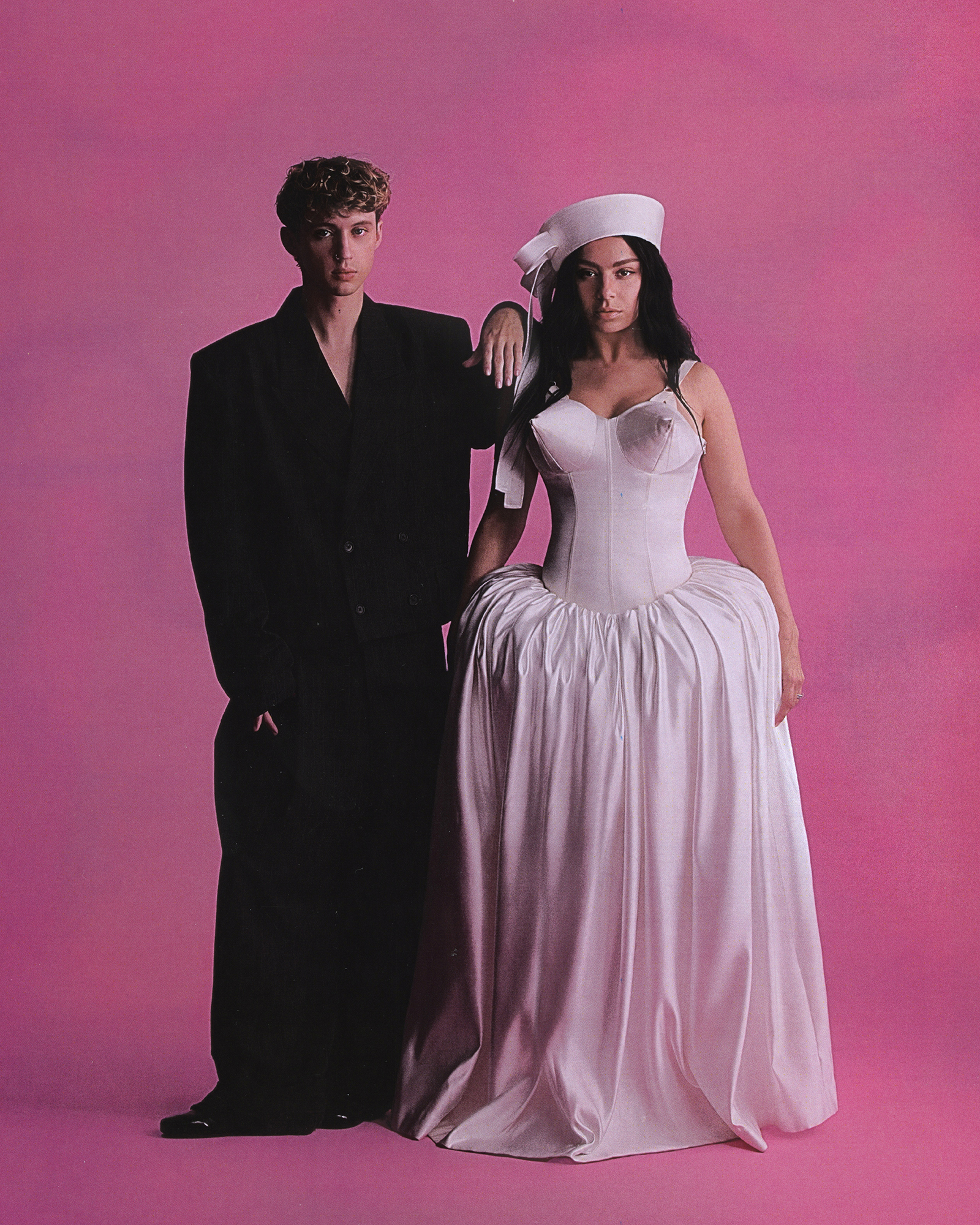
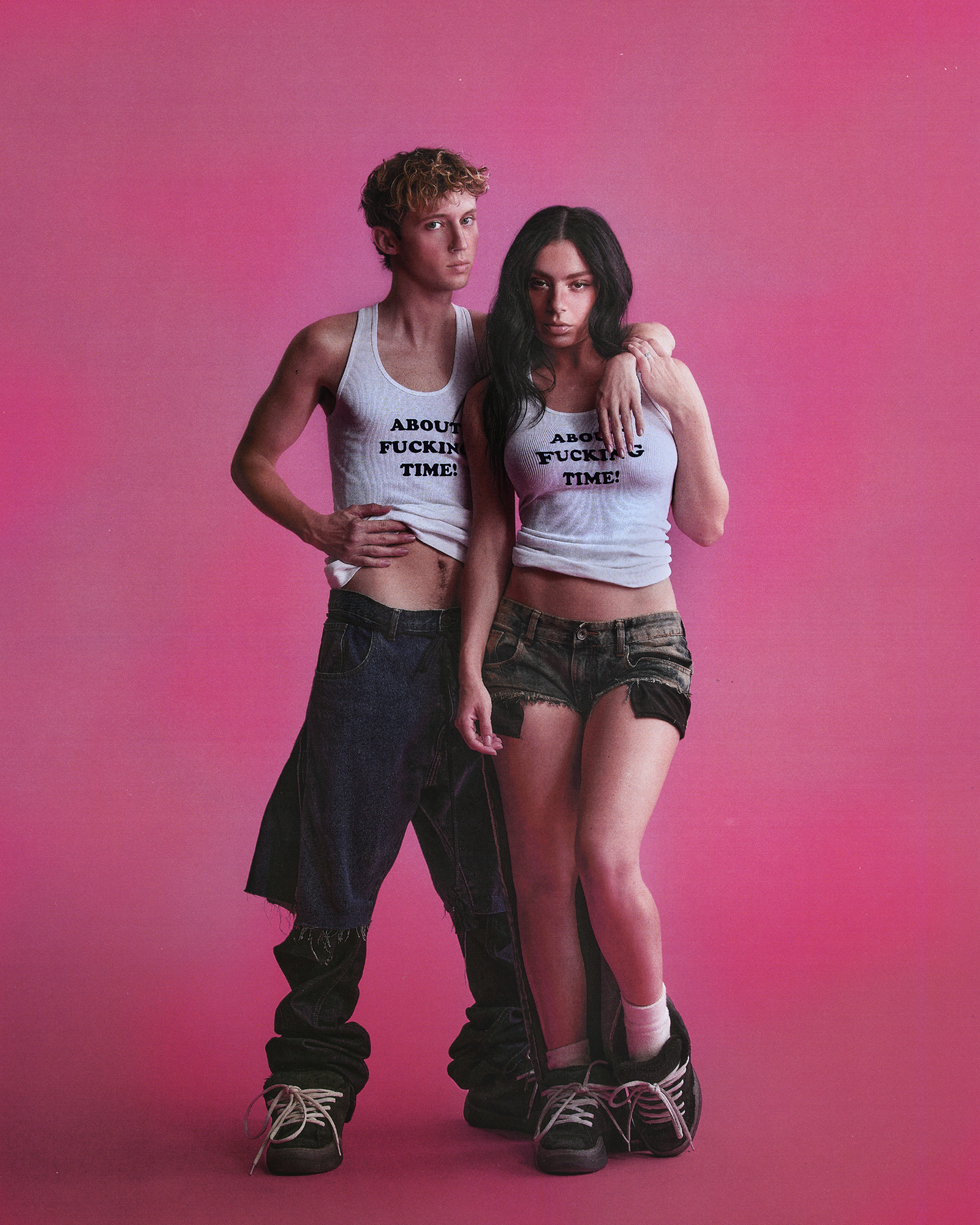
You were all able to form your own identities on the internet. Because of TikTok, what you create can get disseminated much faster now.
Troye: I feel having the safety of a niche audience online, and being able to develop in that safety and not in the absolute mainstream, has done wonders for a lot of people. I’ve had a platform for a while where I can try things and express myself and create. I’m interested to know how you feel, Charli, about the mainstream success of Brat. Did you feel prepared for that?
Charli: I was not in any way expecting what happened to happen. I knew I’d made a great record. You always hope “maybe more people will hear this one” but it’s not really what I live or die by. I was definitely more prepared because I understood every single thing that I did for this record and why I did it, down to the placement of the font, down to the reason I sing things in certain timbres, down to the way I look. And I also experienced commercial success in 2014 when I definitely was not ready. When I think about myself singing “Boom Clap” or “Fancy” or “I Love it” and not knowing why I was doing certain things in certain ways or why I was wearing certain things or why I was even doing things, period…I think from that to now I’m in such a drastically different place with myself and my artistry and with my confidence, to be honest.
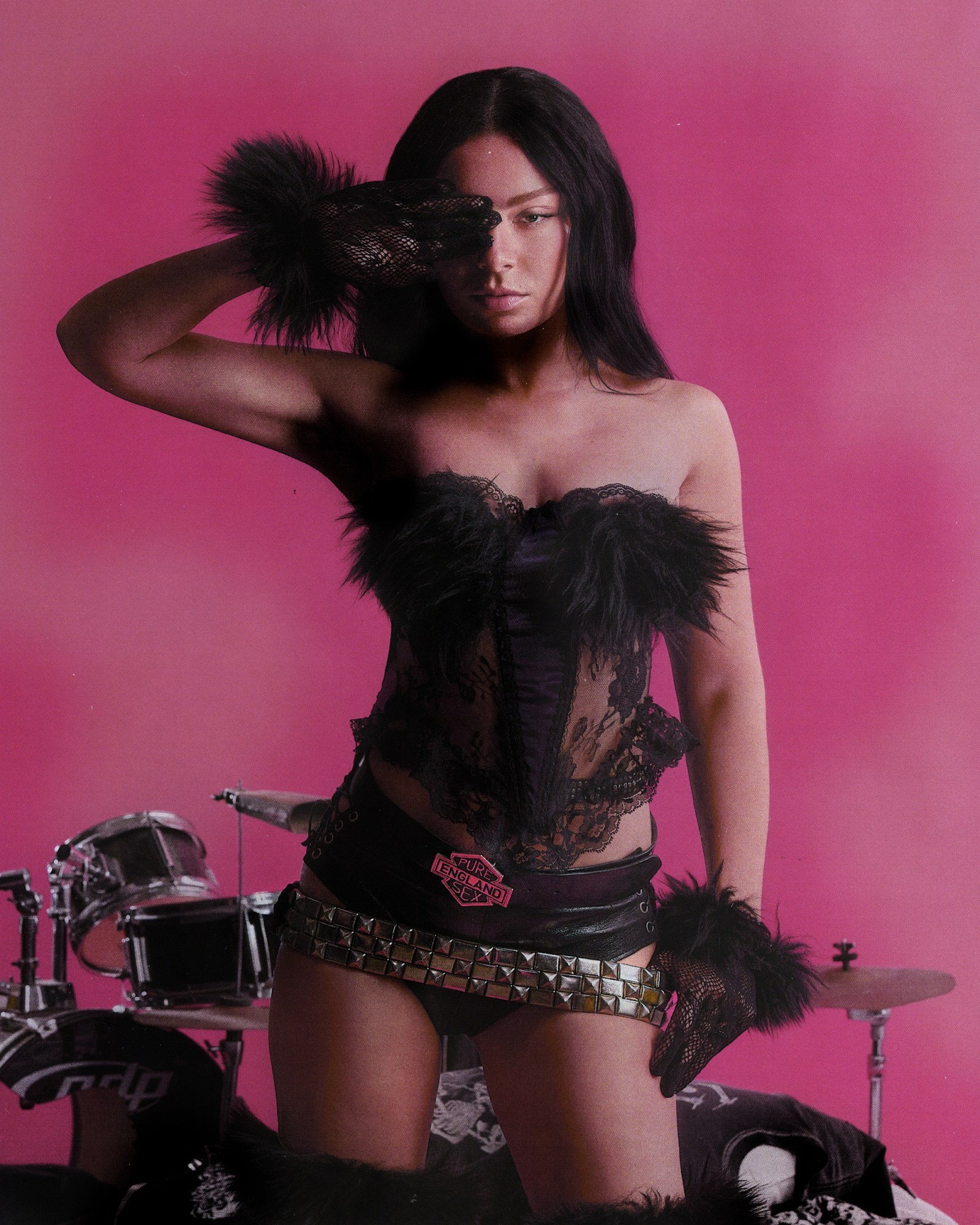
What are you excited about for the live show?
Charli: Everything.
Troye: Literally everything.
Charli: The staging is fucking crazy. I mean, not to hype it up too much, but it’s great.
Charli, you’ve said that you thought mainstream success would bring you happiness. Has it brought you the happiness you thought it would?
Charli: My perspective on what qualifies as success has changed. For me, success is the fact that I made this record exactly the way that I have made it: with the people that I love, and I’ve made no sacrifices on it. Of course, it’s an added bonus that a lot of people seem to be into it, but that also comes with public takedowns and a lot of other shit that I don’t necessarily love.
Are you worried about being overexposed?
Charli: No, because I think that’s inevitable. I think Troye was talking about the ebb and flow of things, and I think naturally if a lot of people become into something, the natural response is to be like, “We’re done with this.” I’m very aware of how pop culture works, especially on the internet. So I’m just like, “Whatever. It’s over when it’s over.” [laughs]
What would your signature scents smell like?
Troye: Well, I have perfumes. I’ve got a few, but my favourite at the moment is one called Luca that we haven’t released yet.
Charli: And I would smell like Luca too, because I stole some of your samples from your pop-up in New York.
Troye: You and The Dare.
Charli: Yeah, I did tell him not to. I was like, “I don’t think we’re supposed to be taking these,” but he filled a bag with them and I took one.
After Brat Summer comes Sweat Fall.
Charli: Exactly. So you have to buy some perfume for that.
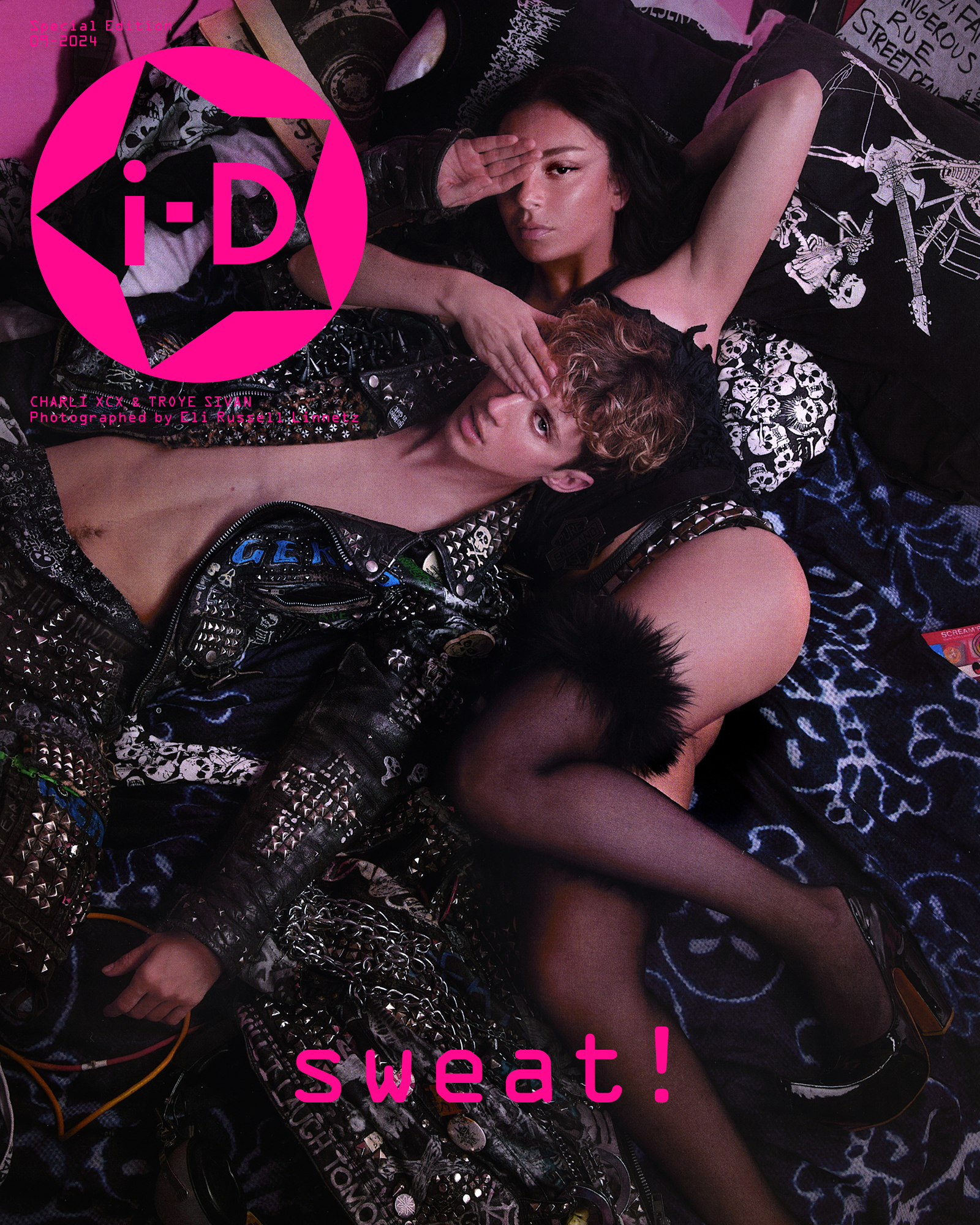
Photography: Eli Russell Linnetz
Creative Direction: Jamie Reid
Fashion: Claudia Sinclair
Hair: Evanie Frausto at Streeters
Make-up: Sam Visser at Art Partner
Set design: James Rene at Jones Management
Photography assistance: Sam Massey
Lighting technician: Byron Nickleberry
Digital technician: Toma Kostygina
Fashion assistance: Grace Thompson and Sébastien Hohl
Hair assistance: Austin Weber and Sokina Khamrabaeva
Make-up assistance: Arielle Park
Set design assistance: Ryan Elliott
i-D Executive Producer: Elise Lebrun
i-D Producer: Kasia Williams
Producer: Jonathan Bossle at Tightrope Production
Production manager: Mischa Rouzbehani
